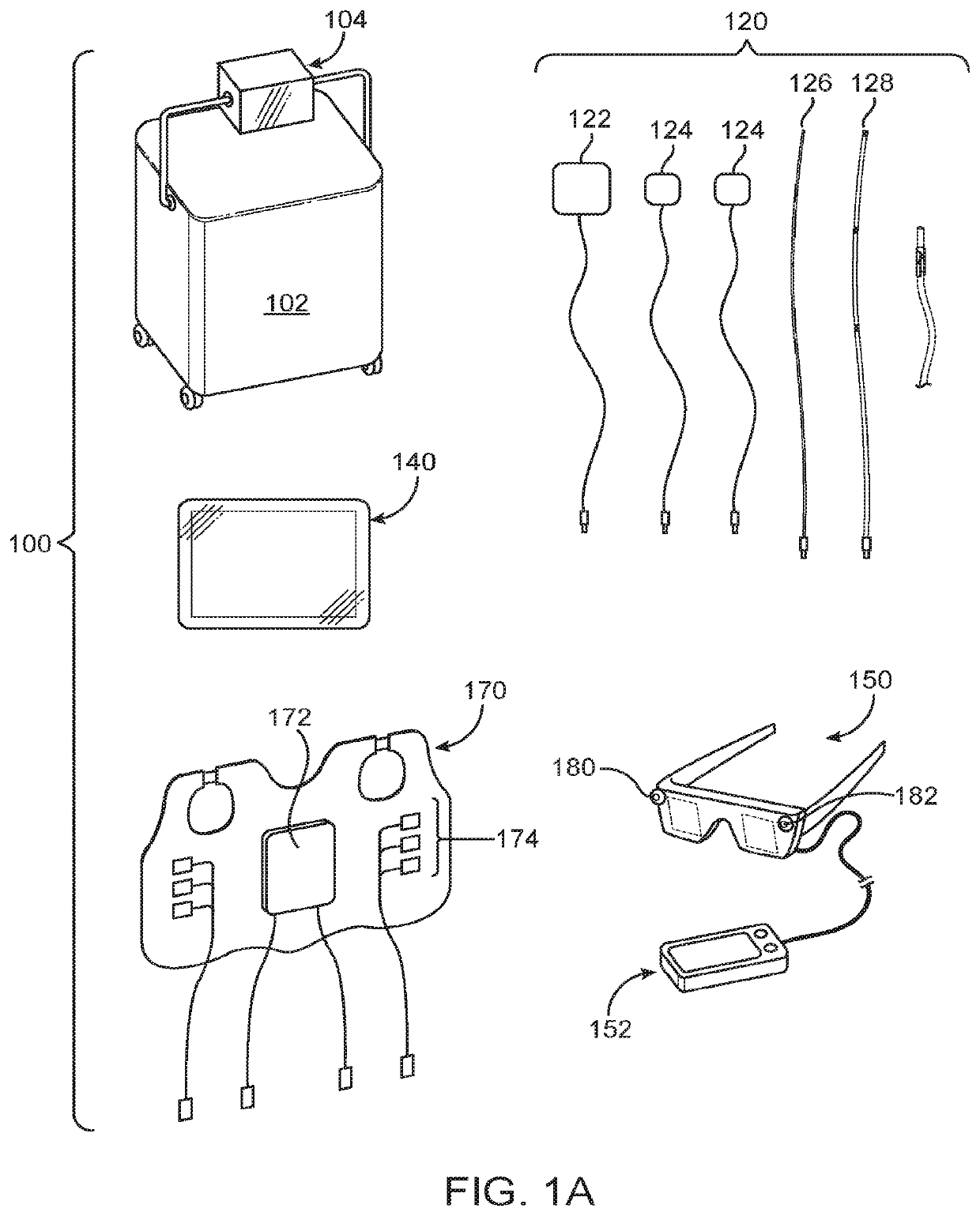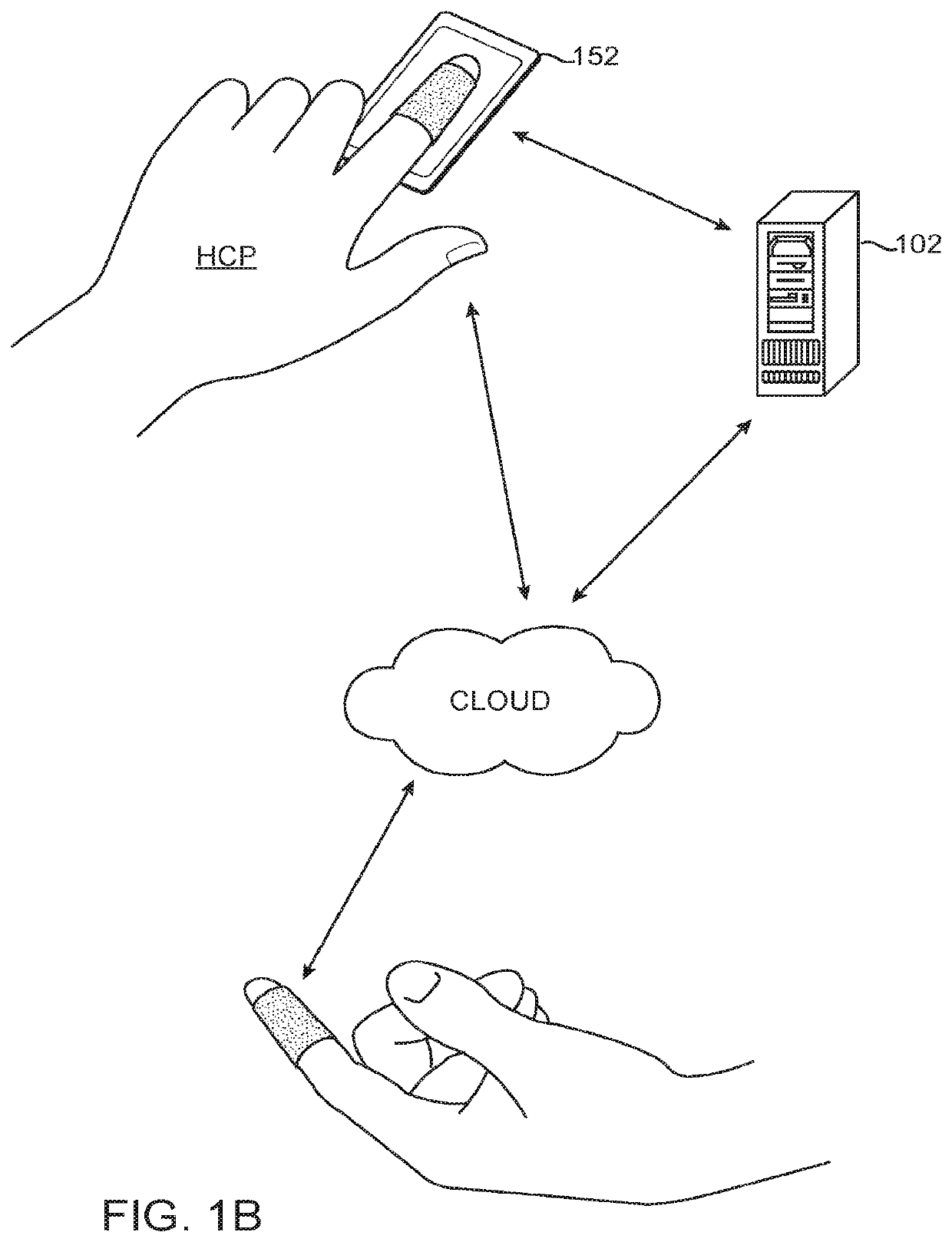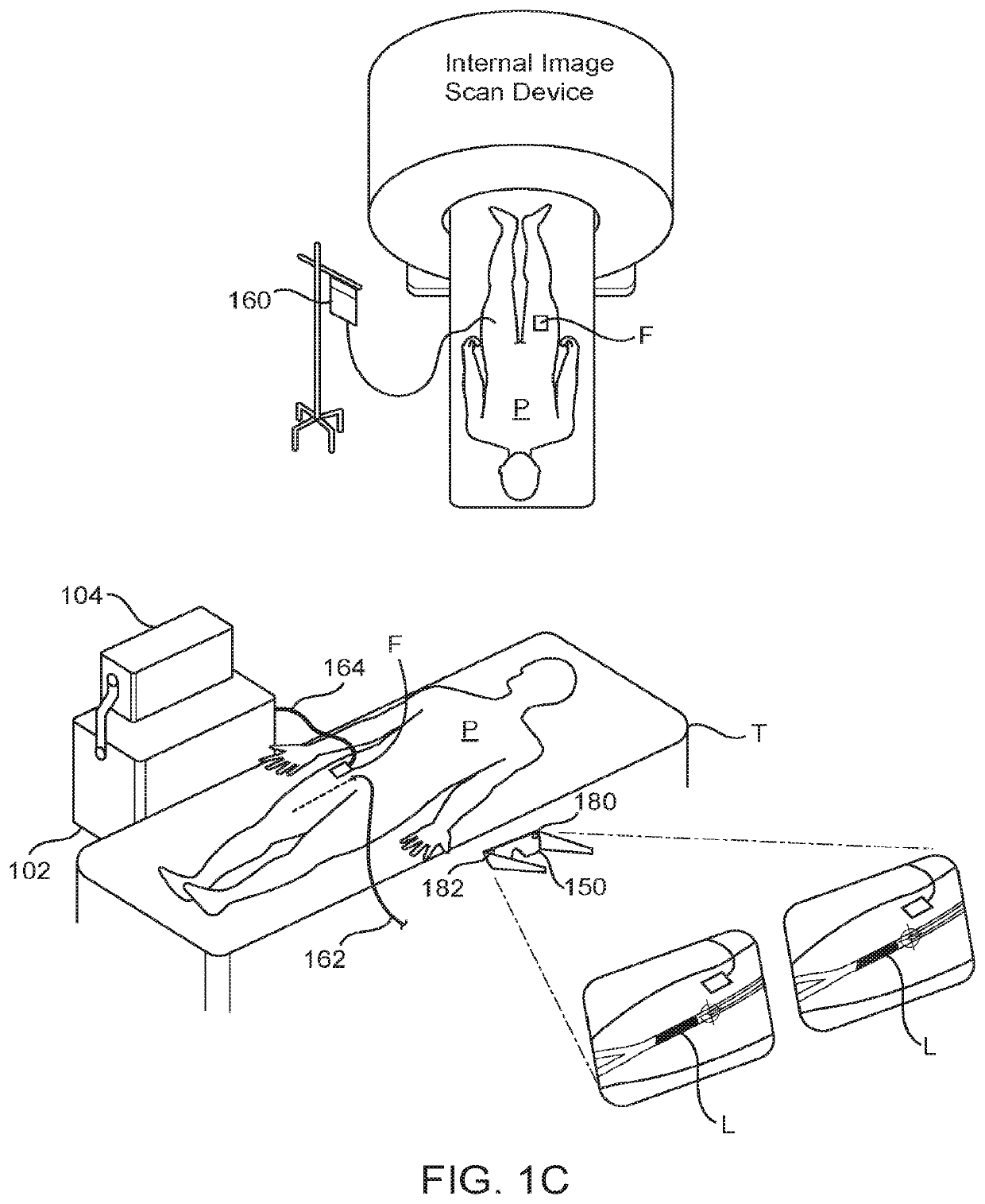Enhanced reality medical guidance systems and methods of use
a medical guidance system and enhanced reality technology, applied in the field of enhanced reality medical guidance systems and methods of use, can solve the problem that the use of ar is yet to realize its full potential in the healthcare spa
- Summary
- Abstract
- Description
- Claims
- Application Information
AI Technical Summary
Benefits of technology
Problems solved by technology
Method used
Image
Examples
example i
egistration
[0197]The devices described herein may begin to work with a patient for diagnosis and treatment planning the moment the patient enters the health care system. Many medical records are stored electronically, and government issued insurance and benefits often encourage this practice. Electronic records may be correlated by patient identification, whether that identification is an alphanumeric code, social security number, or simply a patient name or designation. The patient may initiate a medical procedure with a health care provider, and take initiate steps for patient check-in (FIG. 11A). The patient can start by interacting with the HCP by either calling to make an appointment, or registering for an appointment online 1102. During the initial interaction, the patient can be queried as to the reason why the patient is seeking medical help, and any adverse health symptoms can be noted 1104. If the patient's condition is urgent or life threatening, the system or the HCP can...
example ii
[0201]In another example embodiment, a patient may be viewed by a health care provider and the health care provider may opt to engage the enhanced reality system in the event the patient is not already in the system. This may be done at any time the during or after a patient visit to see a health care provider, or any time during or after the patient engages in a consultation with a health care provider over the phone, via internet connection (video conference), chat (delayed text or voice communication over the cloud), or other methods of communication.
[0202]In this example, patient data may come from an initial check-in as described herein. Alternatively, patient data may be retrieved from storage when the HCP is in the examination room with the patient (FIG. 12A). The HCP may present context sensitive data to the patient 1202, and discuss the health condition and symptoms of the patient. Data from the backend system relevant to the patient condition may be displayed on a...
example iii
re Examination
[0203]In another example embodiment, the patient may require additional screening to determine the cause of symptoms, or to treat an identified health condition. The patient may enter a pre-surgical examination from a referral, additional testing or simply show up for a scheduled surgical procedure (FIG. 12B). In this example, the HCP may again present the patient with context sensitive data and verify any information in the patient record so far 1250. The presentation of the data may be in a wearable display 1252. If the patient is in for additional testing, screening or referral, the HCP can conduct those services with the aid of the enhanced reality system and have data presented to the HCP through the wearable display 1254. If the patient consents, video of the additional procedures may be taken and sent to the backend 1256. The HCP can now use the system and the enhanced reality images to illustrate to the patient the nature of the medical condition to be treated,...
PUM
 Login to View More
Login to View More Abstract
Description
Claims
Application Information
 Login to View More
Login to View More - R&D
- Intellectual Property
- Life Sciences
- Materials
- Tech Scout
- Unparalleled Data Quality
- Higher Quality Content
- 60% Fewer Hallucinations
Browse by: Latest US Patents, China's latest patents, Technical Efficacy Thesaurus, Application Domain, Technology Topic, Popular Technical Reports.
© 2025 PatSnap. All rights reserved.Legal|Privacy policy|Modern Slavery Act Transparency Statement|Sitemap|About US| Contact US: help@patsnap.com



